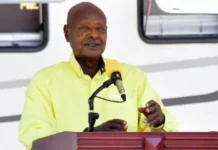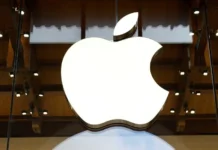In a dramatic turn of events, TikTok briefly went dark for U.S. users on Saturday night, only to reappear hours later after President-elect Donald Trump pledged to sign an executive order to delay the enforcement of the recently enacted TikTok ban.
The rapid sequence of events has sparked conversation across the tech world, leaving users and experts questioning the future of one of the most popular apps in the United States.
The blackout began late Saturday night, leaving TikTok’s 170 million American users staring at a somber message: “A law banning TikTok has been enacted in the U.S.” The app’s disappearance extended to the Apple and Google Play stores, as well as to ByteDance’s other platforms, including Lemon8 and CapCut.
However, by midday Sunday, the app had begun to flicker back to life. TikTok attributed the sudden revival to President-elect Trump’s public assurance that his incoming administration would work to save the app. In a statement, TikTok expressed gratitude for Trump’s clarity, emphasizing the importance of the platform for users and small businesses alike.
The Political Play
Trump’s involvement has turned the TikTok saga into a political spectacle. Just hours before the app’s restoration, Trump announced on Truth Social his intention to issue an executive order to delay the ban. He described his move as a means to protect national security while exploring a partnership between ByteDance and a new American owner.
Trump’s vocal support for TikTok marks a stark contrast to his earlier calls for a ban during his first term, signaling a strategic pivot. Analysts speculate that Trump’s newfound support for the app is tied to his desire to connect with younger voters—a demographic he has openly credited with his election success.
National Security vs. Digital Freedom
At the heart of the controversy lies the tension between national security concerns and the rights of digital platforms. The bipartisan law banning TikTok was driven by fears that ByteDance, a China-based company, could be compelled to share U.S. user data with the Chinese government.
Yet, the app’s immense popularity among younger Americans has made the ban highly contentious. While a Pew Research Center survey in 2023 found that nearly half of Americans supported the ban, it remains deeply unpopular among Gen Z and Millennials, who rely on the app for news, entertainment, and even income.
The Path Forward
As TikTok resumes operations, its long-term fate in the United States remains uncertain. Trump’s proposed joint venture between ByteDance and a U.S. company could provide a temporary solution, but analysts warn that such a deal would face regulatory scrutiny and could take months to finalize.
Meanwhile, the tech community is closely watching how Trump’s executive order will address legal liability for TikTok’s technology partners, including Oracle, Apple, and Google. These companies play a critical role in hosting TikTok’s services, and the law’s steep penalties pose significant risks if enforcement resumes.
Implications for Tech Regulation
The TikTok saga underscores the growing challenges in regulating global tech companies. As governments grapple with issues of data privacy, national security, and digital sovereignty, the case could set a precedent for future decisions about foreign-owned platforms operating in the U.S.
For now, TikTok users can breathe a sigh of relief—but the app’s ultimate fate will depend on how Trump’s administration navigates the complex interplay of politics, technology, and public opinion in the months ahead.



















